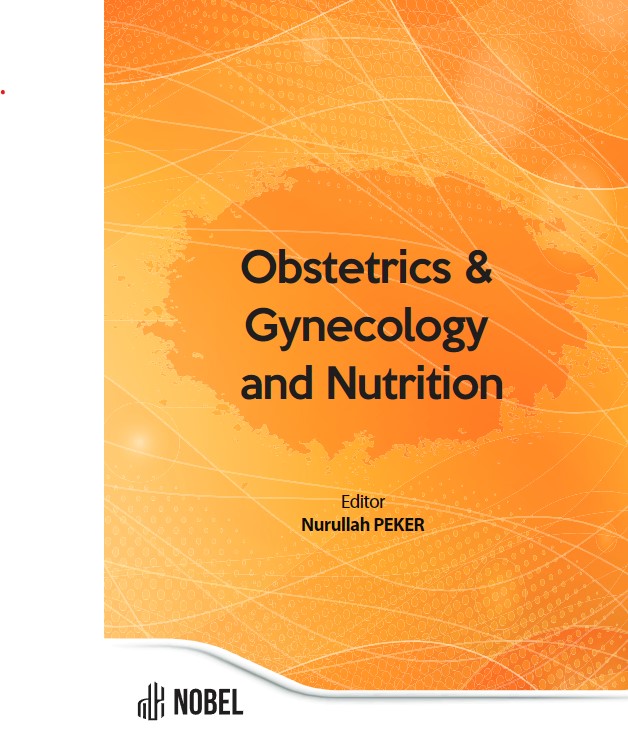The Importance of Nutrition in Perimenoposal Women
Ferit Ozmaskan (Author)
Release Date:
Perimenopause is the period when women experience a decline in reproductive abilities and adjust to changes in estrogen production. It typically begins in the mid-40s and can last until menopause. During this time, women may experience symptoms such as irregular menstrual cycles, hot flashes, sleep disturbances, and mood swings. Menopause is confirmed after 12 consecutive [...]
Media Type
Buy from
Price may vary by retailers
| Work Type | Book Chapter |
|---|---|
| Published in | Obstetrics & Gynecology and Nutrition |
| First Page | 99 |
| Last Page | 105 |
| DOI | https://doi.org/10.69860/nobel.9786053359494.8 |
| Page Count | 7 |
| Copyright Holder | Nobel Tıp Kitabevleri |
| License | https://nobelpub.com/publish-with-us/copyright-and-licensing |
Ferit Ozmaskan (Author)
Dicle University
https://orcid.org/0009-0004-1831-8110
3Dr. Ferit Özmaskan graduated from Dicle University Faculty of Medicine in 2019. In 2020, he started working as a research assistant in the Department of Obstetrics and Gynecology at Dicle University Faculty of Medicine, and he is still working as a research assistant. Ferit Özmaskan ,MD, Obstetrician and Gynecologist ORCID:0009-0004-1831-8110 Institution Dicle University Faculty of Medicine, Diyarbakır, Turkey
Harvie, M. Breast cancer. In Manula of Dietetic Practic; Gandy, J., Ed.; Wiley Blackwell: Oxford, UK, 2019; pp. 842–846.
Martin, S.; Schneider, B.; Heinemann, L.; Lodwig, V.; Kurth, H.J.; Kolb, H.; Scherbaum, W.A. Self-monitoring of blood glucose in type 2 diabetes and long-term outcome: An epidemiological cohort study. Diabetologia 2006, 49, 271–278. [CrossRef]
Bussell, G. Menopause. In Manual of Dietetic Practice; Gandy, J., Ed.; Wiley Blackwell: Oxford, UK, 2019; pp. 85–87.
European Food Safety Authority. Dietary Reference Values for nutrients Summary report. EFSA Support. Publ. 2017, 14, 98
Cosentino, F.; Grant, P.J.; Aboyans, V.; Bailey, C.J.; Ceriello, A.; Delgado, V.; Federici, M.; Filippatos, G.; Grobbee, D.E.; Hansen, T.B.; et al. 2019 ESC Guidelines on diabetes, pre-diabetes, and cardiovascular diseases developed in collaboration with the EASD. Eur. Heart J. 2020, 41, 255–323
Zwart, J.J.; Richters, J.M.; Ory, F.; de Vries, J.I.; Bloemenkamp, K.W.; van Roosmalen, J. Uterine rupture in The Netherlands: A nationwide population-based cohort study. BJOG 2009, 116, 1069–1080.
Management of osteoporosis in postmenopausal women: The 2021 position statement of The North American Menopause Society. Menopause 2021, 28, 973–997.
| onix_3.0::thoth | Thoth ONIX 3.0 |
|---|---|
| onix_3.0::project_muse | Project MUSE ONIX 3.0 |
| onix_3.0::oapen | OAPEN ONIX 3.0 |
| onix_3.0::jstor | JSTOR ONIX 3.0 |
| onix_3.0::google_books | Google Books ONIX 3.0 |
| onix_3.0::overdrive | OverDrive ONIX 3.0 |
| onix_2.1::ebsco_host | EBSCO Host ONIX 2.1 |
| csv::thoth | Thoth CSV |
| json::thoth | Thoth JSON |
| kbart::oclc | OCLC KBART |
| bibtex::thoth | Thoth BibTeX |
| doideposit::crossref | CrossRef DOI deposit |
| onix_2.1::proquest_ebrary | ProQuest Ebrary ONIX 2.1 |
| marc21record::thoth | Thoth MARC 21 Record |
| marc21markup::thoth | Thoth MARC 21 Markup |
| marc21xml::thoth | Thoth MARC 21 XML |

